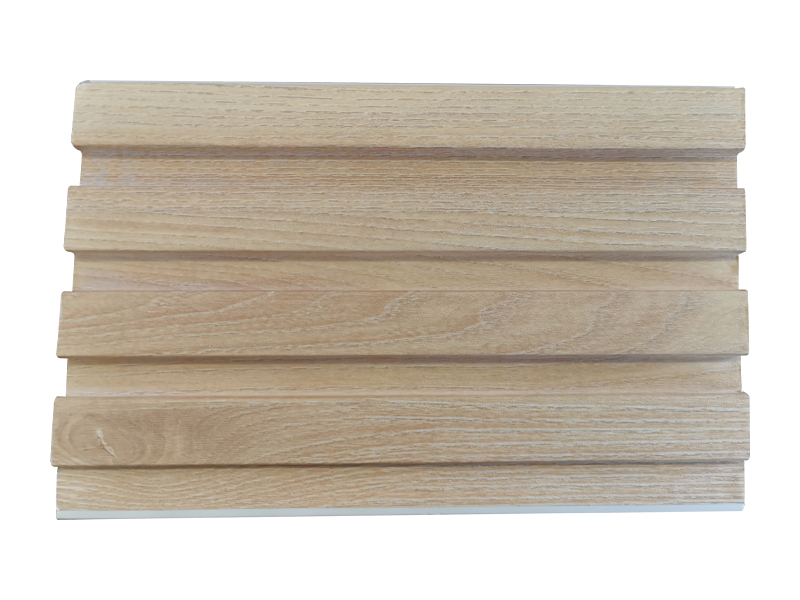WPC (Wood-Plastic Composite) fluted wall panels resist rot primarily due to the combination of materials and manufacturing processes involved in their production. Here are the key factors that contribute to their resistance to rot:
Absence of Natural Wood: Traditional wood is susceptible to rot because it contains organic cellulose fibers that provide a food source for fungi, molds, and bacteria. WPC panels, on the other hand, typically contain a minimal amount of natural wood fibers. These fibers are encapsulated within the plastic matrix during the manufacturing process, reducing their exposure to moisture and microorganisms.
Moisture Resistance: Rot is often the result of prolonged exposure to moisture. WPC panels are engineered to be highly resistant to moisture and water absorption. They do not swell, warp, or decay when exposed to wet conditions. This resistance is due to the hydrophobic nature of the plastic component in the composite, which repels water.
Chemical Additives: During the production of WPC, chemical additives can be incorporated to enhance resistance to decay and microbial growth. These additives may include fungicides or antimicrobial agents that discourage the growth of fungi and other microorganisms that cause rot.
Plastic Matrix: The plastic component in WPC acts as a protective barrier around the wood fibers, preventing them from coming into direct contact with moisture. This encapsulation prevents the wood from absorbing water and provides a barrier against rot-causing agents.
Dimensional Stability: Unlike natural wood, which can expand and contract with changes in humidity, WPC panels maintain their dimensional stability. This means they are less likely to crack, split, or develop gaps where moisture could penetrate and cause rot.
Low Porosity: WPC materials have low porosity, meaning they have fewer open pores and gaps for moisture to penetrate. This further reduces the risk of moisture-related issues such as rot and decay.
UV Resistance: Some WPC formulations include UV stabilizers that protect the material from the damaging effects of ultraviolet (UV) radiation. UV resistance helps maintain the structural integrity of the panels over time, preventing them from becoming brittle or deteriorating.
Low Maintenance:
WPC fluted wall panels require minimal maintenance, which is a key factor in preventing rot. Unlike natural wood, they do not need regular sealing, painting, or staining, which can be a source of vulnerability to moisture infiltration.
In summary, the resistance of WPC fluted wall panels to rot can be attributed to their composition, which minimizes the presence of natural wood fibers exposed to moisture, their moisture resistance, chemical additives, and protective plastic matrix. These properties collectively make WPC a durable and rot-resistant alternative to traditional wood for various applications.
